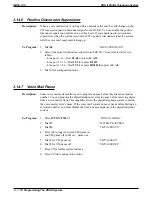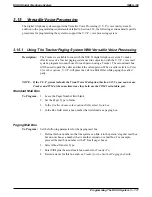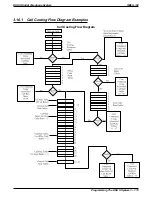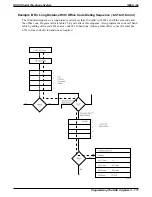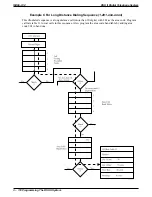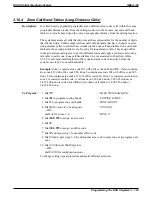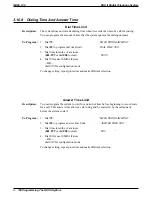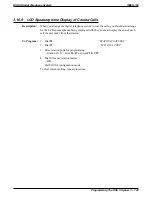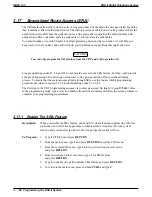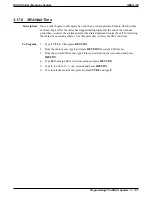
3.16.3
Office Code Band Tables (Local Calls)
Description:
The system measures the number of dialed digits in calls that do not match exception
tables. It compares calls with numbers that have less than 10 digits (local calls) to entries
that you have made in office code banding tables. Office code band tables are the second
priority level of costing for local calls. They provide a means for you to assign local
office codes into different bands and apply a separate call costing rate table to each band.
Bands 1–7 are associated with call rate tables 18–24 respectively. Use office code band
tables to cost calls made within a specific area code but to sites located at different
geographic distances from the calling location.
Example: A telephone company exchange consists of office codes 976, 977, and 978.
Office code 976 is assigned to an outlying area while office codes 977 and 978 are
assigned to the heart of the city. Assign 977 and 978 to one office code band table and
976 to another one. Program a special call costing rate for each banding table. Then, the
system costs the calls that users make to 976-nnnn at a different rate than it costs the calls
that users make to 977-nnnn or 978-nnnn.
To Program:
1. Dial 75.
“SMDA PROGRAMMING”
2. Dial 01 to program costing bands.
“COSTING BANDS”
3. Dial 1 to program office code bands.
“OFFICE CODE BANDS”
4. Dial 0 to assign no band
“NO BAND”
—OR—
dial 1–7 for bands 1–7.
“BAND X”
5. Dial 200–999 to assign office code.
6. Dial # and repeat step 5 for additional code.
7. Dial
✳
and repeat steps 4-6 to program next band.
8. Dial
✳ ✳
for next SMDA feature
—OR—
dial
✳ ✳ ✳
for configuration mode.
To change setting, repeat procedure and make different selection.
IMI66–132
DSU II Digital Telephone System
3 – 122 Programming The DSU II System
Содержание DSU II
Страница 31: ......



